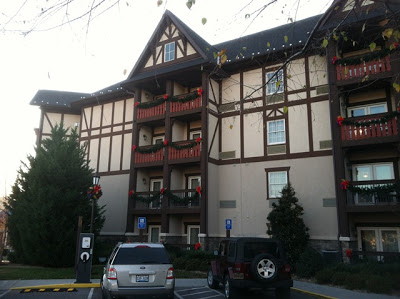This incident has been getting national media attention similar to the incident in Atlanta that occurred last year. 50 people were poisoned from ambient CO levels close to 1700 ppm in that incident. With this national attention, the same useless information and ineffective solutions will probably follow. There will be a huge uproar from the media and someone will recommend UL listed CO alarms in all hotels and everyone will feel safe.
Three people died in the same hotel room and the same garbage that hasn’t worked for decades to solve this is once again being brought up as the cure. For those of you reading this, store bought carbon monoxide alarms and laws enforcing their installation are not the answer here!!
The same week in Wisconsin, a hotel was also evacuated due to extremely high levels of ambient CO. This incident didn’t get any national media attention though as no one died and the same misinformation about a carbon monoxide leak was spread once again. It’s not normal for carbon monoxide to leak folks. Even if it did, it shouldn’t be at levels that can kill you. Otherwise everyone cooking with a gas oven would already be dead.
If you travel much or plan on vacationing this summer, there are some things you need to know to keep yourself and your family safe from getting carbon monoxide poisoning in a hotel. As many of you know, I do a lot of traveling around the country teaching carbon monoxide diagnostics and combustion safety, this are the rules I live by while I’m traveling and on vacation. I would highly recommend you consider these rules as a guide for you and your family while on the road.
Rule Number 1: Always Pack Low Level Carbon Monoxide Protection
If the low level CO monitor goes off while at the hotel bring it to the attention of the hotel management. If they won’t correct the problem it’s time to move to a safer location. Don’t keep this a secret though; it needs to be known if unsafe conditions exist. This knowledge could have prevented the tragedy in Boone!

Just a note, if you plan on traveling with a low level CO monitor on a plane, be sure to turn it off before you board. I promise you it will go off and they tend to look at you as a terrorist when this happens. Not that I’m speaking from experience or anything like that.
Rule Number 2: Avoid Rooms on the First Floor
Through the wall HVAC units and automotive exhaust always combine for an interesting combination. This combination can put you at an extreme risk for getting CO poisoned from an idling car parked outside of your room. This happens as a certain amount of outside air is pulled into the through the wall unit and distributed directly into the hotel room. If a vehicle happens to be idling outside your room, that air could have high levels of carbon monoxide in it for you and your family to breath. The room on the first floor has the potential to expose you to high levels of carbon monoxide only a few feet from your room’s door or window. Play it safe and stay away from them.
Rule Number 3: Avoid Rooms Near the Mechanical Room
The poisonings that took place in Boone happened in a room that was located directly above the mechanical room for the hotel. Try to be proactive and request a room that is away from the mechanical room when you make your reservations.
If you discover that your room is located near the mechanical room once you arrive, request a room change. Don’t be afraid to inconvenience the hotel staff to do this, they’ll get over it, I promise. If they deny your request to move, cancel the room and go someplace that actually cares about their guests. It isn’t worth your safety and the safety of your family to take this risk.
The lists of potential time bombs for carbon monoxide that are located in a mechanical room include boilers, water heaters, pool heaters, and dryers. It is very common to find these appliances often operating unsafely. You might wonder why these unsafe appliances aren’t discovered and shutdown. In order to find these problems, carbon monoxide has to be properly tested for anytime the equipment is serviced or when installed.
Sadly the majority of those servicing and installing this equipment don’t have the test equipment or the training to test and verify the equipment is safe once it is turned on. What makes it even sadder is that there are no laws that require the appliances to be tested at all. What is it going to take to wake people up? Aren’t three deaths in a hotel in Boone North Carolina enough?
